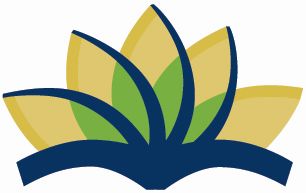
“Bethany Theological Seminary has a history of adapting its program to meet the changing needs of the church and society. Now the Seminary finds itself in a rapidly changing religious landscape, involving congregational life, denominational institutions, religious affiliation, and spirituality in America.”
From its beginnings in Chicago — when prison ministry and service to immigrants were integral to its curriculum — Bethany Theological Seminary has prepared students to make a difference. The opening words of its new strategic vision, above, testify to an awareness of the need to be flexible and creative in helping today’s students serve as they are called.
Now approaching its 115th year, Bethany has launched new specialized graduate certificates for persons in any profession to enhance their work and vocation with theological study. All can be completed in in one to two years, and each requires just five courses that are already part of the Seminary’s MDiv and MA programs.
- Certificate in Intercultural Biblical Interpretation
- Certificate in Just Peace and Conflict Transformation
- Certificate in Theopoetics and Theological Imagination
- Certificate in Theology and Science
“Bethany’s Certificate in Theopoetics and Theological Imagination has provided me unique opportunities to cultivate my academic and ministerial voice in a context both theoretically comprehensive and practically engaged. This context is fostered by the acumen of the Bethany faculty, all of whom show through both words and actions a profound desire to invest in future scholars, theologians, and ministers.”
— Evan Underbrink, 2017 recipient of the Certificate in Theopoetics and Theological Imagination
As Steve Schweitzer, academic dean, explains, these certificates were created “for individuals interested in graduate-level study who do not want or need a full master’s degree and for graduates from degree programs who want additional study in a particular field. They were approved due to known student interest in these fields and the fact that Bethany can support these areas of study from our larger curricular offerings.”
The titles alone convey fresh ways of thinking about ministry and service and new approaches to living out theological values that resonate in the current culture. Learn more from the words of the professors who teach the courses:
Intercultural Biblical Interpretation — This specialized certificate focuses on sacred Christian texts and methods of interpretation, particularly in conversation with intercultural hermeneutics and global perspectives. Students will learn with scholars who bring expertise in the culture and context in which the Bible was written with conversation for today’s application. This is suitable for anyone seeking to enhance their knowledge for writing, teaching, preaching, and personal devotion.
— Daniel W. Ulrich, Wieand Professor of New Testament Studies
Just Peace and Conflict Transformation — Conflict transformation goes beyond conflict resolution and conflict management to an understanding of the journey involved in engaging conflict. This approach emphasizes the spiritual disciplines of prayer, meditation, waiting, and deep listening as well as an openness to the oftentimes serendipitous nature of a transformative process, which guides us toward the relational nature of healthy conflict engagement.
–– Debbie Roberts, continuing adjunct faculty
Theopoetics and Theological Imagination — Many on a spiritual quest are now turning from theo-logics to theopoetics in attempting to name themselves and render God’s name in history. Theopoetics suggests that religion’s nearest analogue is art; therefore, it practices theology as an inspired, inventive and intuitive act of composition performed by authors. We look to poets and preachers, artists and intellectuals, scientists and gardeners, young mystics and old saints to artfully manifest spiritual truth, goodness, and beauty. Theological imagination opens one’s mind, heart, and soul for the church and world.
— Scott Holland, Slabaugh Professor of Theology and Culture and Director of Peace Studies and Cross-Cultural Studies
Theology and Science — Science and theology are the two most compelling ways of understanding reality. Sometimes they are seen as enemies, but mostly they are strangers as people struggle to fit together the Sunday world of God and faith with the Monday world of science and technology. In this certificate program, strangers become friends. We look at amazing convergences between science and theology. We see how science can help our faith to be more believable and beautiful, while theology helps science to be more meaningful and ethical.
— Russell Haitch, Professor of Theology and Human Science
— Nathanael Inglis, Assistant Professor of Theological Studies
Visit Bethany’s website and contact Bethany admissions staff to learn how these opportunities for knowledge and growth can enhance life and work.
 Jenny Williams is director of communications for Bethany Theological Seminary in Richmond, Ind., which is the graduate school for the Church of the Brethren, one of the three Historic Peace Churches.
Jenny Williams is director of communications for Bethany Theological Seminary in Richmond, Ind., which is the graduate school for the Church of the Brethren, one of the three Historic Peace Churches.


